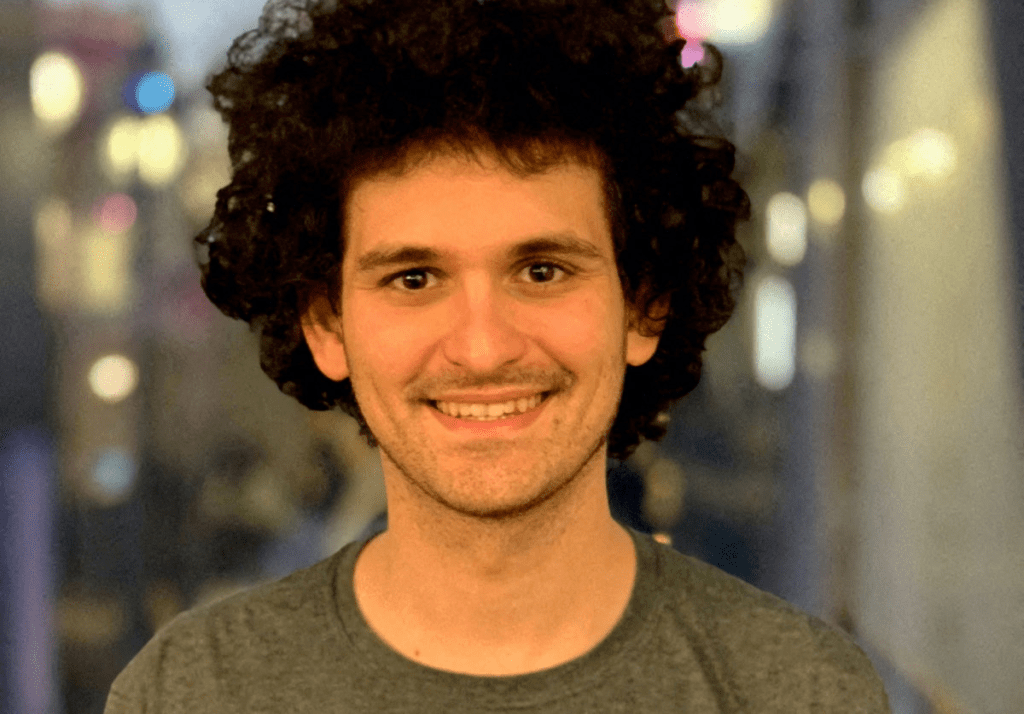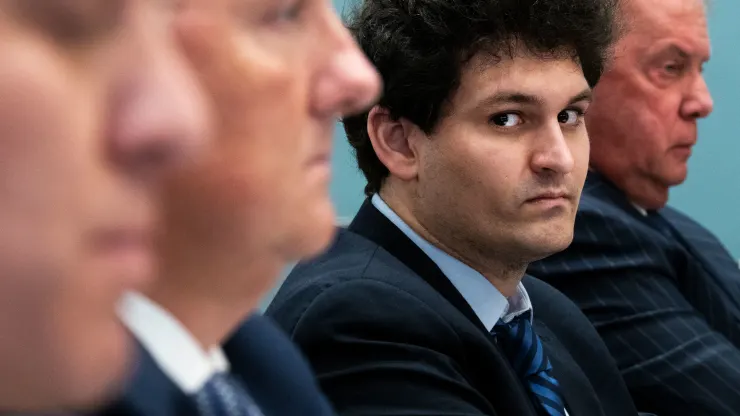The former CEO of failed cryptocurrency firm FTX, Sam Bankman-Fried, has been arrested in the Bahamas at the request of the U.S. government, the U.S. and Bahamian authorities said Monday.
Sam Bankman-Fried’s arrest in the Bahamas on Monday marks the beginning of a new chapter in the FTX saga, one that will pit the former crypto billionaire against the Southern District of New York.
The indictment is expected to remain sealed until Tuesday morning. U.S. prosecutors haven’t commented, and neither the Attorney General of the Bahamas nor the Royal Bahamas Police Force would confirm the nature of the charges against Bankman-Fried.
Bankman-Fried had been under criminal investigation by U.S. and Bahamian authorities following the collapse last month of FTX. The firm filed for bankruptcy on Nov. 11, when it ran out of money after the cryptocurrency equivalent of a bank run.

“Earlier this evening, Bahamian authorities arrested Samuel Bankman-Fried at the request of the U.S. Government, based on a sealed indictment filed by the United States Attorney’s Office for the Southern District of New York,” U.S. Attorney Damian Williams said in a statement. “We expect to move to unseal the indictment in the morning and will have more to say at that time.”
Bankman-Fried’s arrest comes just a day before he was due to testify in front of the House Financial Services Committee, along with the company’s current CEO, John Ray III.
Bahamian Attorney General Ryan Pinder said the Bahamas would “promptly” extradite Bankman-Fried to the U.S. once the indictment is unsealed and U.S. authorities make a formal request. Meanwhile Bahamian authorities plan to continue their own investigation into Bankman-Fried.
“The Bahamas and the United States have a shared interest in holding accountable all individuals associated with FTX who may have betrayed the public trust and broken the law,” said Bahamian Prime Minister Phillip Davis, in a statement.
Bankman-Fried said recently that he did not “knowingly” misuse customers’ funds, and said he believes his millions of angry customers will eventually be made whole.
The New York Times reported that the charges against Bankman-Fried included conspiracy to commit wire fraud and securities fraud, as well as standalone charges of securities fraud, wire fraud and money laundering.
The SEC has initiated a separate set of charges against Bankman-Fried, relating to “violations of our securities laws, which will be filed publicly tomorrow in the Southern District of New York,” enforcement director Gurbir Grewal said in a statement on Monday.
A spokesperson for the SEC declined further comment.
The charges could land Bankman-Fried in prison for decades, legal experts told CNBC. But before he ever serves time, U.S. prosecutors have to secure an extradition from the Bahamas back to New York.
An effort to extradite
“It is inconceivable to me that the Justice Department would have charged this case unless they were confident that they could extradite him,” Renato Mariotti, a former federal prosecutor, told CNBC.
Mariotti anticipates an extradition will take weeks to complete.
“The statement by the Bahamian government suggests that they’re going to cooperate,” Mariotti said.
The U.S. and the Bahamas have had an extradition treaty in place since 1931, with the most recent iteration codified in 1990. Because Bankman-Fried hasn’t been convicted in the Bahamas yet, U.S. prosecutors had to secure an arrest warrant and provide sufficient evidence to the Bahamians that he had committed a crime.
Extradition is the first step in a process that could take years to finish. Given the magnitude of Bankman-Fried’s alleged crimes, prosecutors and regulators will be pursuing concurrent cases around the world.
A trial in the U.S. “may not occur for years,” Mariotti said.
“The more that they charge, the bigger that the case is, the more time they’re going to need to get in motion,” he said. “I would say late 2023 is the earliest a trial would occur.”
Prosecutors could argue that FTX breached its fiduciary duty by allegedly using customer funds to artificially stabilize the price of the company’s self-issued FTT coin, Mariotti said.
Intent is also a factor in fraud cases, and Bankman-Fried insists he didn’t know about potentially fraudulent activity. He told CNBC’s Andrew Ross Sorkin at the New York Times DealBook conference that he “didn’t knowingly commingle funds.”
“I didn’t ever try to commit fraud,” Bankman-Fried said.
In prepared testimony for the House Financial Services committee, new FTX CEO John Ray confirmed that commingling of funds had occurred between FTX and Alameda Research, Bankman-Fried’s hedge fund.
Other legal trouble
Beyond the criminal charges set to be unveiled Tuesday morning, Bankman-Fried is also facing civil action, which could be brought by the SEC, the Commodity Futures Trading Commission and state banking and securities regulators, said Richard Levin, who chairs the fintech and regulation practice at Nelson Mullins Riley & Scarborough.
The CFTC and lawmakers have begun their probes into FTX and Bankman-Fried, who told Sorkin he was down to his last $100,000.
Shortly after Bankman-Fried’s arrest, the SEC appeared to confirm that the agency would pursue a separate set of charges from the criminal indictment.
Lawmakers also expressed their satisfaction at Bankman-Fried’s arrest. Senator Sherrod Brown (D-Ohio), who chairs the Senate Committee on Banking, Housing, and Urban Affairs, applauded both the Justice Department and Bahamian law enforcement “for holding Sam Bankman-Fried accountable.”
Rep. Maxine Waters (D-Calif.), the chairwoman of the House Financial Services Committee, echoed that sentiment, but expressed disappointment that Bankman-Fried was arrested before his House testimony, which was scheduled for Tuesday.
“I am surprised to hear that Sam Bankman-Fried was arrested in the Bahamas at the direction of the United States Attorney,” Waters said in a statement.
″[The] American public deserves to hear directly from Mr. Bankman-Fried about the actions that’ve harmed over one million people,” Waters continued.
Bankman-Fried had also been invited to appear before the Senate prior to his arrest. That hearing will occur on Wednesday.
It’s unclear whether the SEC or the CFTC will take the lead in securing civil damages.
“The question of who would be taking the lead there, whether it be the SEC or CFTC, depends on whether or not there were securities involved,” Mariotti told CNBC.
SEC Chairman Gary Gensler, who met with Bankman-Fried and FTX executives earlier this year, has said publicly that “many crypto tokens are securities,” which would make his agency the primary regulator.
But many exchanges, including FTX, have crypto derivatives platforms that sell financial products like futures and options, which fall under the CFTC’s jurisdiction.
“For selling unregistered securities without a registration or an exemption, you could be looking at the Securities Exchange Commission suing for disgorgement — monetary penalties,” said Levin, who’s represented clients before both agencies.
Investors who have lost their savings aren’t waiting. Class-action suits have already been filed against FTX endorsers, like comedian Larry David and football superstar Tom Brady. One suit excoriated the celebrities for allegedly failing to do their “due diligence prior to marketing [FTX] to the public.”
FTX’s industry peers are also filing suit against Bankman-Fried. Failed lender BlockFi sued Bankman-Fried in November, seeking unnamed collateral that the FTX founder provided for the crypto lending firm.
FTX and Bankman-Fried had previously rescued BlockFi from insolvency in June, but when FTX failed, BlockFi was left with a similar liquidity problem and filed for bankruptcy protection in New Jersey.
Bankman-Fried has also been sued in Florida and California federal courts. He faces class-action suits in both states over “one of the great frauds in history,” a California court filing said.


